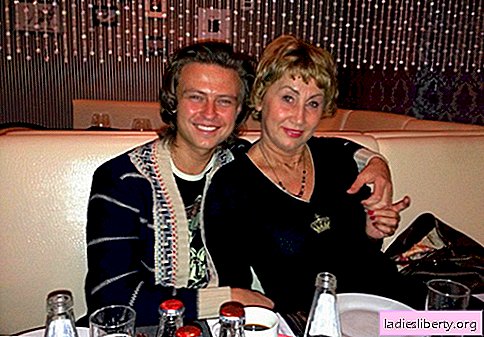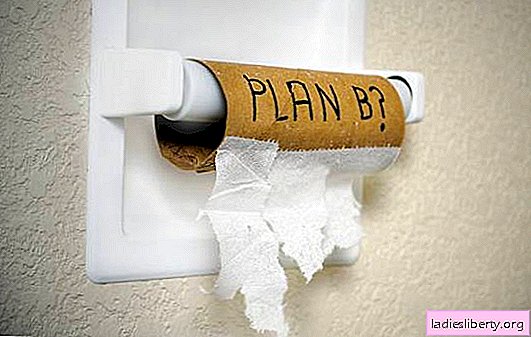
The maternity hospital was left behind, and with it experienced specialists - neonatologists, ready to help and intercept the baton at any moment. At home, of course, the walls help, but the excitement does not leave young mothers. What you need to prepare and what you need to know at the time of discharge?
More and more maternity homes are on the fast discharge path, trying not to delay the mother and baby for more than 3 days during natural childbirth, and reducing the stay to 5 days at caesarean section. This means that a young mother can be at home without mastering the skills for caring for a newborn. Especially hard to those who chose a separate stay. What should you learn to do by the time you return from the maternity hospital, and what concerns will your mother face in the very first day at home?
Dressing up
- Clothing. The newborn seems very fragile, besides it does not know how to hold the head. Therefore, for the first few days, prepare the most comfortable clothes - it is best to do it with padlocks without fasteners and diapers, gradually practicing to dress your baby in more complicated clothes. Jumpsuits and bodysuits are more comfortable, but they require a familiar and firm hand.
- Hygiene. Newborn diapers often get dirty, they need to be changed after each urination or stool. Some babies do not express any signs of anxiety, because disposable diapers absorb moisture well. However, the contact of the baby’s skin with urine is very harmful, therefore, changing the diaper is necessary no less than every 2 hours. It is necessary to quickly master the process of washing with water - the baby can be held with one hand over the sink, washing its perineum with warm running water. It is convenient to use only wet wipes for cleansing, but you should not abuse it this way. When using disposable diapers, it is recommended to apply a cream against diaper rash. Do not forget that small air baths are necessary; when changing clothes, do not rush to put on a new diaper, giving your baby the opportunity to lie naked for 5-15 minutes.
Bathing
About when you can bathe the baby, you will be informed at discharge from the hospital. Small restrictions may be imposed if the baby has been vaccinated. But most likely, the discharge coincides with the first real bathing of the newborn. This will have to be done in boiled water, with the addition of a weak solution of potassium permanganate. The umbilical wound heals in babies in different ways, but even with a visible flat surface it is better not to risk it. The tub should be well washed. The water temperature is most reliable to measure with a thermometer, since the sensitivity of an adult can fail. Water should not be warmer and not colder than 36-37 degrees.
- Handling baby. Immediately after bathing it is necessary to treat the delicate skin of the newborn. Wipe dry and rub the child is not necessary, it should be wetted with a soft towel. With a cotton swab, all wrinkles are cleaned, especially the perineum and palms, the elbow and knee folds and armpits are processed. During strong heat, it is better to powder the folds with baby powder.
- Umbilical wound. Its surface is treated with a sterile cotton swab dipped in hydrogen peroxide.
- The eyes of the baby are treated with a sterile cotton swab, from the inner to the outer corner, and the nose is cleaned with cotton flagella.
Feeding
When breastfeeding it is necessary to put the baby as often as possible - if the lactation did not have time to get better at the maternity hospital, then, most likely, the milk will arrive exactly on the first day of stay at home. Such a surge is often accompanied by severe swelling and tenderness of the chest. With proper feeding, the baby will be able to absorb it. However, some newborns are too weak, and the ducts are narrow, so it is better to prepare in advance the manual or electric breast pump. The first day of lactation can bring a lot of trouble, most of which will relieve frequent feeding on demand. It is not necessary to wash the breast before each feeding, but it is simply necessary to take care of a comfortable posture. It is most comfortable to feed lying on your side or sitting in a comfortable chair, putting a pillow under your arm.
Daily regime
The whole first month the newborn will sleep a lot. Expect that the silences will leave him already in the process of feeding, therefore all hygienic manipulations are best carried out before him. If the baby falls asleep while feeding, do not rush immediately to shift him to the crib. Carry the child vertically for at least 15-20 minutes so that he can burp out accidentally swallowed air or excess milk. On the first day of the house, it is important to start working on the correct regimen - at night, the processing and feeding of the infant should take place in dim light, in silence, and immediately after changing and feeding it should be put to bed.
Try not to plan household chores on this day - after all, for a woman in labor, the first days at home are just as important as for a baby. Visitors are better to postpone, using time for rest and sleep.
Text: Vera Guler











